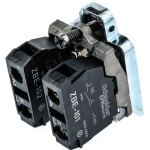
Introduction
Power supplies serve as a backbone in any electronic system, providing the necessary voltage and current to ensure the proper functionality, stability, and reliability of electronic devices. Among their several forms and configurations, modular power supplies have gained robust popularity in recent years. This comprehensive guide covers everything about modular power supplies–from their basic components to their advantages, types, selection criteria, and maintenance tips.
Understanding Power Supplies
A power supply is a device or system in electronic devices, responsible for converting alternating current from your wall outlet into the DC – required by your computer or other hardware components. For a typical electronic component, power supplies act as a backbone in providing necessary electrical energy to power and operate in a controlled and reliable manner. The significance of power supplies lies in the reliability, efficiency, and safety of electronic systems in various fields–from consumer electronics to industrial equipment and scientific instruments.
Introduction to Modular Power Supplies: The Need for Modularity
The growing diversity of electronic applications, the demand for robust efficiency, cost savings, and adaptability, as well as the increasing focus on sustainability and reliability, necessitates modularity in power supplies. A modular power supply, also called Modular Power Supply Unit (PSU) or modular power unit, is a type of computer PSU designed to offer greater flexibility to detach and attach cables as needed for your specific setup. Unlike traditional non-modular power supplies, which come with a fixed set of cables, the one-size-fits-all modular power supplies facilitate cable management and customisation by helping reduce cable clutter inside your computer case, leading to improved airflow and aesthetics.
Standard Power Supplies vs. Modular Power Supplies: Comparing Their Potential Advantages
Modular power supplies offer several advantages over standard non-modular power supplies, making them a popular choice for many computer enthusiasts and professionals. Some potential benefits include:
- Cable Management (Reduced Cable Clutter) – One of the primary advantages of modular power supplies is improved cable management. With non-modular power supplies that typically end up with a bundle of unused cables, it is challenging to hide and organise. Power supplies tackle the issue by only connecting the required cable, resulting in a cleaner and tidier interior of your computer case.
- Enhanced Airflow – Improved cable management goes hand in hand with enhanced airflow. With fewer cables cluttering in modular PSUs, the airflow inside the case improves – essential for maintaining lower temperatures, which, in turn, leads to better performance and longevity of your components.
- Improved Aesthetics – It’s easier to create a clean and professional-looking system with a modular power supply. The absence of excess cables not only improves airflow but also makes your build look more visually appealing.
- Ease of Upgrades and Maintenance – Modular power supplies simplify the process of upgrading or replacing components within your system. By easily detaching and reattaching cables, you can easily make the overall maintenance and upgrading of your PC.
- Customisation – It offers a degree of customisation in choosing the cables that suit your specific needs, such as cable length, colour, and type. These customisation options also allow to create a personalised look for your PC–whether for a sleek and minimalistic design or a vibrant and colorful one.
- Cable Compatibility – Some power supplies come with necessary cable types and connectors, making them compatible with multiple motherboards and components, including different GPU and CPU configurations.
- Future-Proofing – Bespoke power supplies can be a good investment for future upgrades. They allow reusability with different builds by changing out the modular cables to match the new components.
Key Components of a Modular Power Supply
A modular power supply comprises the following main components:
- Main Unit – It is the central unit that contains the critical components responsible for converting and regulating electrical power.
- Modular Cables – Modular cables are detachable and connect to the main unit to supply power to various hardware components. They come in multiple types to cater to different connections, including 24-pin ATX, PCIe, SATA, and CPU power connectors.
- Connectors – They are found on both the main unit and modular cables, ensuring secure attachment of cables to the power supply and components.
- Screws and Mounting Hardware – Included screws and mounting hardware are the installation accessories that secure the power supply to the computer case.
- Cooling System – These supplies feature cooling systems, such as fans and heatsinks, to dissipate heat generated during operation and maintain optimal temperatures.
Categories of Modular Power Supplies: Exploring Their Popular Varieties
Modular power supplies come in different categories, such as:
Fully Modular Power Supplies
Fully modular power supplies, as the name suggests, are fully modular, offering the highest level of customisation. None of the cables are permanently attached to the unit, allowing users to connect only the necessary cables for their build. A fully modular supply is an ideal choice for those requiring complete control over cable management and aesthetics.
Semi-Modular Power Supplies
Semi-modular power supplies come with essential cables (usually motherboard and CPU power) permanently attached, while other peripheral cables (SATA, PCIe, etc.) are modular. These are a good compromise between full customisation and ease of installation.
Non-Modular Power Supplies
Non-modular power supplies have all the cables permanently attached to the unit. While being more affordable, they can lead to cable clutter and make cable management challenging.
Choosing the Right Modular Power Supply: Exploring the Selection Criteria
Choosing the proper modular power supply for your device is an important decision, as it directly impacts the stability and performance of your system. When selecting a modular power supply, there are several factors to consider, such as:
- Wattage and Voltage
- Cable Quality and Length
- Form Factor
- Efficiency Rating
- Modular or Semi-Modular
- Compatibility
- Cost and Warranty
- Brand and Reputation.
Modular Supply’s Maintenance and Troubleshooting: Cable Management Tips
Regular maintenance involves cleaning dust from the power supply’s fan and ensuring all connections are secure. Check for loose cables, damaged connectors, or a failing power supply and follow safety precautions when working with electrical components. To achieve the best cable management with a modular power supply, follow the given instructions:
- Use cable ties or Velcro straps to bundle and secure cables together.
- Properly route cables behind the motherboard tray or through designated cable management holes.
- Keep cables away from heat sources and moving components.
- Plan your cable layout in advance to minimise excess cable length.
Final Words
Modular power supplies have become a popular choice among PC builders due to their cable management benefits, improved airflow, and customisation options. When buying a modular power supply, consider various parameters to ensure it meets your specific needs. By understanding the multiple factors and maintenance tips mentioned in this guide, you can surely make an informed decision and provide a stable power supply for your electronic devices.





















